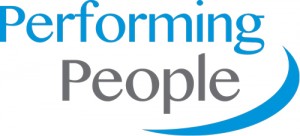Leadership for today’s corporate reality
My first attempt at a lead into this topic retold a story about the different leadership styles between the Japanese and American naval commanders at the Battle of Midway in 1942. Luckily for me, I asked my wife for some feedback and she was blunt; ‘most women are not interested in military history and you’ll have lost them before they get half-way through the first paragraph!’
So I quickly googled ‘women’s leadership stories’ and came across a business insider piece of research on ‘Why women are better leaders’. And it makes for interesting reading indeed: http://www.businessinsider.com/study-women-are-better-leaders-2014-
When they looked at the competency of ‘practicing self-development’, it seems that women over the age of 40 maintain the habit of asking for feedback and taking action to improve, whereas men assume that they are doing fine and don’t really need much feedback. The look on my wife’s face at this point said everything!
The study finds that as women mature they are perceived as more effective at leadership than their male counterparts. The top 5 leadership competencies where women are more effective than men are the following:
- takes initiative
- displays high integrity and honesty
- drives for results
- practices self-development
- develops others.
Contrary to the stereo-types, the top 3 competencies above are not those nurturing qualities often cited as reasons why women are better leaders than men. When they looked at the competency of ‘practicing self-development’, it seems that women over the age of 40 maintain the habit of asking for feedback and taking action to improve, whereas men assume that they are doing fine and don’t really need much feedback. The look on my wife’s face at this point said everything!
Men scored higher on only out of 16 competencies, ‘develops strategic perspective’ and ‘technical or professional expertise’.
Demonstrating your leadership potential in this brave new world
So, how can women start to demonstrate the leadership potential and promise that this study proves undeniably that they have?
We know that leadership itself is a resource which has to be used wisely and focused on the high-value activities of motivating and developing staff and understanding the opportunities in the market. In this first instalment, here is a list of top tips to help you make a start to ‘lead, before you are a leader’:
- In whatever role you find yourself, do a great job to stand out from the crowd! I know it’s obvious, but it continues to be really important.
- Devote the time and energy to build relationships on trust, honesty and a common understanding. Cast your net wide and build relationships with people across the business and at levels. This takes time, but you will reap the rewards in terms of understanding the business, influencing people to support what you are trying to achieve and understanding what opportunities are out there. Leadership is not about an individual at , it is about the relationship between leaders and the led.
- Develop your people skills and ability to manage people, and start with your ability to manage upwards. Sometimes, this involves being honest about bad news.
- Impress your boss by doing a great job, delivering the key things she/he wants or needs you to deliver and by going that extra mile and anticipating what they need before they ask for it.
- Take ownership of your career and for the work that needs to be done and take on more responsibility – you want to be seen as someone who knows what they want, is willing to work hard to make a contribution and do whatever needs to be done to help the business, department or team.
- Be outcome orientated, set yourself goals and plan out how you are going to achieve them.
- Become an expert and preferably in something you enjoy doing!
- Once you start to get more responsibility, delegate in a way that is also helping others to develop – remember the 80:20 rule and try to discern what are the critical activities that you should be spending that -important 20% of your effort on, to get the big 80% results in terms of achieving your goals!
In Part II, we will look at how you develop your leadership skills and trust you will become the leader you want to be, when the time is right.
 Author Bio:
Author Bio:
Lyndon Price is Director at Performing People, a people performance and training consultancy. He has over 20 years’ experience of managing teams as a management consultant and interim project manager, specialising in financial services, is married and has two daughters. He is a qualified NLP (Neuro-Linguistic Programming) trainer and a member of the Association of NLP.

